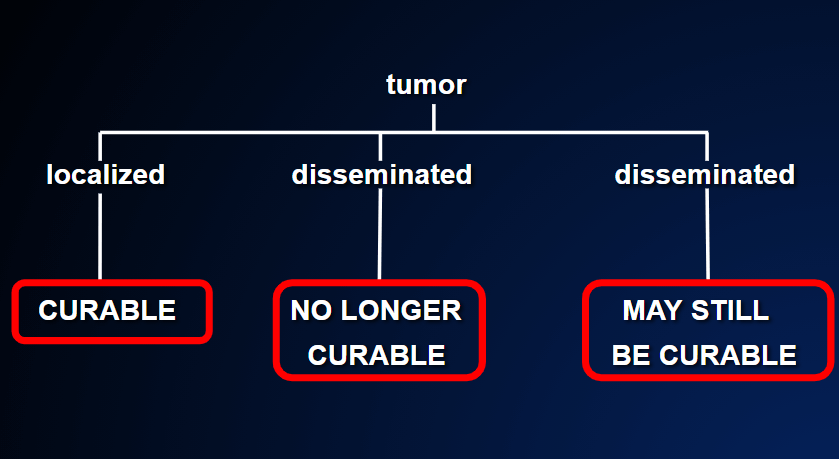All cancer patients can be separated into two categories: curable and incurable. With few exceptions, this stark distinction is based on the stage of the disease; i.e. on its degree of local advancement and its spread to distant sites.
In the classic 4-level staging, patients in stages 1, 2 and 3 are curable, while those in stage 4 are generally incurable. Stage 4 means either:
- there are distant metastases or
- the local progression of the disease is so advanced that the tumor cannot be removed surgically.
However, thanks to newly available therapies, in combination with the classical therapies, this rough separation of curable and incurable patients is gradually fading. Indeed, an ever-growing number of patients who were previously regarded as incurable (on the basis of the classic distinction) are now –3, 5 or 7 years after their diagnosis– alive and well.
Clearly, a class of intermediate patients is emerging between the two categories of “curable” and “incurable”. In these patients, the disease is arrested for such long periods (years) that we can hope that they have been cured; even though, at the beginning, many metastases were found in various organs. (FIGURE 4)

The emergence of this third class of “intermediate” patients brings greater hope to all those patients who have advanced metastatic cancer.
